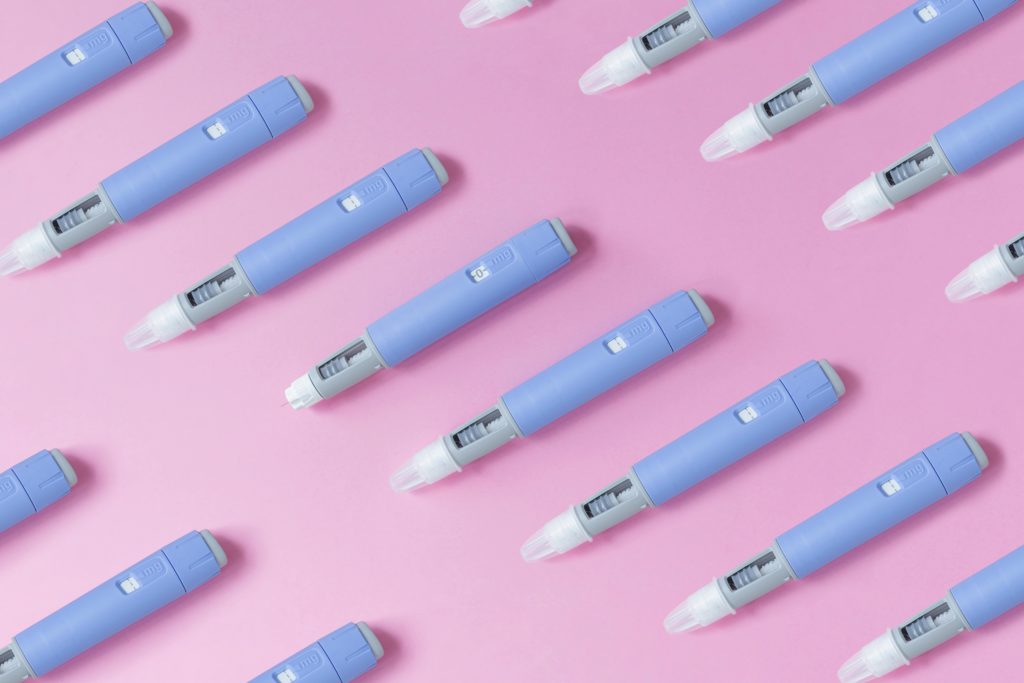Introduction
Over the past couple of years, awareness of GLP-1 drugs among consumers has grown exponentially. However, attitudes surrounding the injections are split. For instance, FMCG Gurus’ consumer insights reveals that 41% of consumers hold a positive opinion while 40% have a negative one. It is important for manufacturers and marketers to understand where these perceptions are coming from. Also it is essential to be aware of how consumer attitudes and behaviors will affect the market going forward.

Convenient and Effective Weight Loss
The main appeal of GLP-1 drugs lies in their ability to assist ‘quick and easy’ weight loss. In 2024, 44% of consumers stated that they wanted to lose weight, however over half of all attempts were unsuccessful. When asked why their attempts had failed, consumers noted that over-indulgence, lack of knowledge, and time scarcity were the biggest challenges. This resulted in their weight staying the same or, for 1 in 3 consumers, weight gain. However, in an era of economic, political, and social uncertainty, maintaining a healthy lifestyle can often be difficult to maintain. GLP-1 drugs provide direct solutions to these challenges. They fit conveniently into a consumer’s routine and help to reduce appetite so the individual is less likely to over-indulge. Consequently, 58% of consumers think that weight loss drugs and injections are a more effective weight loss method than current supplements.

Ethical and Safety Concerns
Despite the appeal of quick and efficient weight loss, 40% of consumers still hold a negative perception of GLP-1 drugs. Of these consumers, 63% state they are concerned about the effect the drugs could have on both physical and mental wellbeing. There are multiple side effects associated with the use of weight loss injections. These include nausea, vomiting, diarrhoea, and in more extreme cases, pancreatitis and kidney issues. Furthermore, when used irresponsibly, the drugs can lead to long term health issues. For example, issues can include the loss of muscle mass, low blood sugar (hypoglycaemia), and malnutrition.
The drugs also present a threat to mental health. FMCG Gurus’ consumer insights reveal that 27% of consumers are concerned that GLP-1 injections encourage those who don’t need to lose weight to do so. Despite being designed to assist those with Type-2 diabetes, the overuse of weight loss injections within pop culture runs the risk of promoting the “size zero” figure. This has led to a black market of GLP-1 drugs for consumers who do not need to lose weight. Therefore, those who do so use the injections without sufficient medical supervision.
There is also evidence to suggest that GLP-1 drugs could worsen the pre-existing health disparities within society. Over half of consumers find price to be one of the biggest challenges to leading a healthy life. FMCG Gurus’ market research shows that 70% of consumers find eating healthy too expensive. While offering quick and convenient weight loss, GLP-1 drugs are incredibly expensive. In Europe, Australia, and Japan, GLP-1 drugs cost around $100-200 a month and $1000 a month in the US. There is already a gap in healthy living between those from low and high-income households globally. This could be drastically heightened by the introduction of weight loss drugs in the market. However, over the next 10 years, the prices of these drugs are expected to decrease and regulate.
The Next 10 Years
While GLP-1 drugs are currently relatively new, they are already becoming staples of the weight-loss market. However, consumers feel that they are lacking clarity about the medications. For instance, 1 in 5 unable to answer whether they perceive GLP-1 drugs to be positive or negative. Consequently, there is an opportunity for brands to raise awareness about the scientific and medical advice surrounding the injections in order to provide understanding and clarity within a sea of misinformation.
There is also evidence to suggest that weight loss injections will have a profound effect on consumer behaviour within the food and beverage industry. An increasing proportion of the population turning to GLP-1 drugs to lose weight is likely to directly lead to consumers buying fewer groceries. Therefore, food and drink manufacturers should start to think about developing fortified products that are small and low in calories yet high in vitamins and nutritional value in order to appeal to consumers who will not be feeling hungry as a result of using GLP-1 drugs.